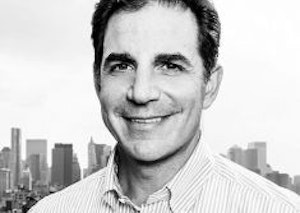AOL president Bob Lord announces planned exit
AOL president Bob Lord, whom many had expected to become chief executive of the US giant, has revealed he is to leave the company in 2016 in the hope of taking the reins at a publicly listed company elsewhere, according to reports.


Speaking with The Wall Street Journal, Lord said he wants to run a publicly listed company, or one that is headed towards an initial public offering (IPO), with current AOL chief executive Tim Armstrong also conceding he had been grooming the soon-to-leave exec to become his eventual successor.
Lord's ambitions of taking the role of chief executive at a publicly listed outfit were frustrated recently when AOL was taken over by US mobile operator Verizon Wireless earlier this year - in what many dub as the key consolidation development in ad tech. This meant the ad tech outfit was likely to become a unit within a wider telecoms operation.
Lord has been with AOL since 2013, and helped oversee a period of frequent acquisitions by AOL, with particular interests in the ad tech sector. This began with the purchase of video advertising outfit Adap.tv ($405m), native advertising company Gravity ($91m), cross-screen attribution firm Converto ($101m), followed by the purchase of video ad exchange Vidible ($50m).
As displayed above, Lord and Armstrong's dual hegemony of AOL has seen the iconic internet brand pivot its proposition to have a heavy emphasis on ad tech, and programmatic media buying. This was typified with the launch of its unified ad stack One by AOL earlier this year.
Since AOL was taken into private ownership, it has also struck a deal with Microsoft to monetise its direct sold online advertising inventory, plus it has also bought Millennial Media (itself a former publicly listed company) for $238m to better improve its mobile offering.
Lord did not give a definitive leaving date in his media interviews, but since joining AOL has positioned himself as a champion of open ecosystems, and a vocal opponent of walled gardens, such as Facebook and Google.
Speaking earlier this year with The Drum, he said: "So our open strategy is all about how the brand or advertising agency owns the data, and not the media company.
"Some of our competitors would say that they own the data, and the brand doesn’t have access to it, I think that’s wrong-headed. For one thing about closed ecosystems is that it doesn’t let advertisers compare apples with apples. So I will share all my data with advertisers, so you can compare me to who’s also in the market competing with me [for spend]."
